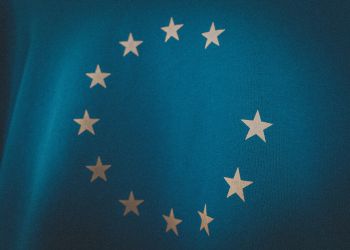
Credit: Christian Lue on Unsplash
- Perceived lack of trustworthy news sources led people to make 'gut instinct' decisions
- People understood emotions were heightened but voting choices weren't led by feelings
Contrary to the prevailing narrative, voters in the EU referendum in the UK were not torn between their 'head and their heart'. A new study including an analysis of new records from the Mass Observation Archive has shown that voters' decisions were often made instead by attempting to weigh up a series of apparent facts and claims. For this, many relied on their 'gut instinct'.
In their paper 'Brexit and the Everyday Politics of Emotion: Methodological Lessons from History', published this month in the Political Studies journal, Dr Emily Robinson, Dr Jonathan Moss from the School of Law, Politics and Sociology at the University of Sussex, and early years researcher Dr Jake Watts, found that voters often had a strong ability to analyse the emotional component in their voting choice.
The Mass Observation Archive, housed at the University of Sussex, and established in the aftermath of the Abdication Crisis of 1937, records everyday life in Britain including public responses to major events. In 2016 and 2017, 408 respondents were asked to submit their anonymous reflections on the EU referendum and Brexit, creating a uniquely rich resource.
The period leading up to the vote became an emotionally charged time for many people. Through a close reading of individuals' responses to the Mass Observation Archive, the researchers found that the public's perceived turn away from rationality and towards emotions prompted a great deal of uneasiness, not only from commentators, but among citizens themselves.
Dr Emily Robinson a senior politics lecturer from the School of Law, Politics and Sociology, said: "While many people were happy to trust their emotions as apolitical and morally neutral sources of political intelligence, others explained in their Mass Observation Archive entries that they were (sometimes reluctantly) relying on 'gut feeling' in the absence of disinterested and trustworthy sources of information. Their decision was not, then, a competition between 'head and heart', so much as an attempt to weigh a series of competing truth claims.
"Within an emotionally heightened environment where people weren't sure what news to trust, they chose to rely on their gut instinct. This finding has an enduring pertinence as in some places – such as during the US election campaign, and internally amongst the factions of the UK's Labour Party – politics is still operating at a heightened emotional pitch."
Dr Jonathan Moss, a politics lecturer from the School of Law, Politics and Sociology, said: "The accepted narrative may be that Remainers made logical decisions and Leavers made emotional ones but our research does not bear this out.
"Both Remainers and Leavers made instinctive decisions but for different reasons. Many Remainers reported feeling instinctively that it is 'better to be part of something', whereas many Leavers felt instinctively at risk of being 'besieged' as a result of EU membership.
"This 'gut instinct' trope was far more prevalent than that of 'balancing head and heart' and was often attributed to having insufficient information to make a purely cognitive decision."
Voices from the Mass Observation Archive
A community health worker from West Bridgford explained that her "gut feeling is that it's better to be a part of something and to try to influence changes from within" (T4715).
A pharmacist from Solihull explained how she had "no real knowledge of whether Britain is better off in Europe" but had a "gut feeling that we should not be alone" (V3773).
A retired writer from Weston-Super-Mare said: "I have no knowledge of the pros and cons, not having exhaustively studied the merits of the matter but, like most people in this country am dependent entirely on the propaganda showered upon us by the various activists. So, I shall decide my own feelings, whether supposedly intelligent or not." (W1382)
One 69-year-old retired nursery teacher said: "After the initial arguments I was fairly drawn to the idea of Brexit but determined to keep an open mind. Since then I watched and read until I have reached saturation point. Is anything clearer than it was? Of course not [. . .] apparently there are 'facts' to consider but amazingly these can be totally different depending which camp you belong to. Everything else is conjecture. Nobody can actually predict the outcomes. So how do we decide? Gut feeling probably (M3408)."
/Public Release. This material from the originating organization/author(s) might be of the point-in-time nature, and edited for clarity, style and length. Mirage.News does not take institutional positions or sides, and all views, positions, and conclusions expressed herein are solely those of the author(s).View in full here.






